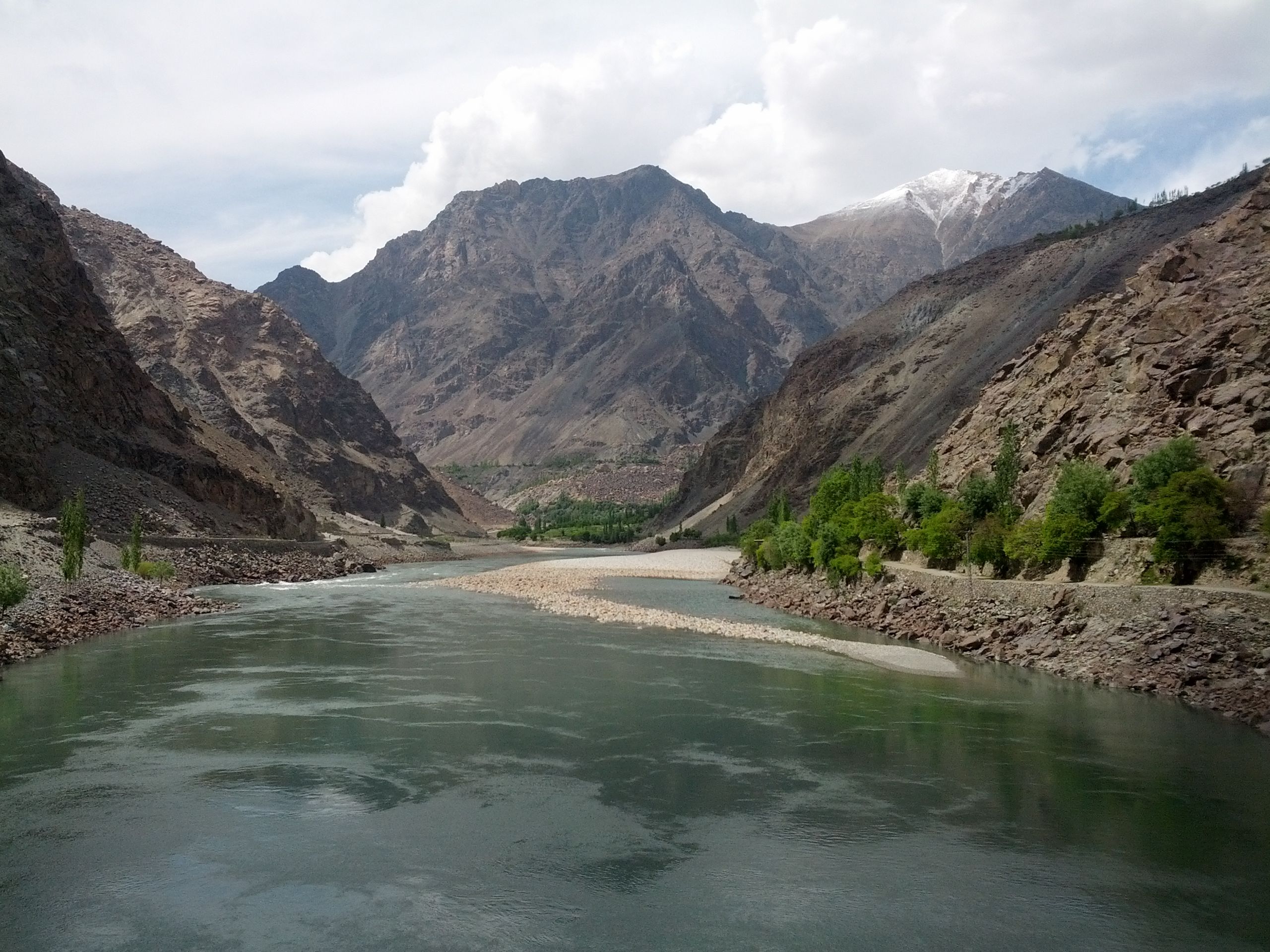by Austin Bodetti
Pakistan has to contend with a long list of threats to its national security, including the recurring spillover from an endless conflict in Afghanistan, the growing risks of a simmering rivalry with India, and the ever-looming possibility that al-Qaeda, the Pakistani Taliban, or little-known Baloch separatists will attempt a comeback in the Pakistani hinterland. The pernicious effects of climate change, however, seem to play little role in the South Asian country’s security policy. Nonetheless, environmental degradation may have no less alarming consequences for Pakistan’s future than nuclear warfare or terrorism.
“Pakistan’s climate-change concerns include increased variability in monsoons, the likely impact of receding Himalayan glaciers on the Indus River system, the decreased capacity of water reservoirs, reduced hydropower during drought years, and extreme events such as floods and droughts,” says Ahmad Naeem Salik, a research fellow at the Institute of Strategic Studies Islamabad. “For Pakistan, water scarcity is one of the biggest security challenges arising out of the climate change issue.”
The Pakistani Council of Research in Water Resources, a Pakistani government agency, worries that Pakistan will deplete its water supply as soon as 2025. The International Monetary Fund has echoed these concerns, adding that Pakistan’s explosive population growth has exacerbated water scarcity.
Global warming is worsening Pakistan’s host of environmental issues, already beginning to hit the South Asian country with deadly heat waves. The same startling phenomenon is threatening coastal cities in much of North Africa and Western Asia, causing scientists to warn the international community that “prolonged heat waves and desert dust storms can render some regions uninhabitable.”
“The most serious environmental issues in Pakistan encompass poor sanitation—responsible for about 40 percent of hospitalizations and the stunted growth of 43 percent of Pakistani children—and the overuse, misuse, and abuse of the water resources of the Indus River, which has degraded the food basket of the country and the Indus River Delta,” says Syed Ayub Qutub, executive director of the Pakistan Institute for Environment Development Action Research. “Others range from degradation of upland watersheds in the active monsoon zone to indoor air pollution from unvented cook stoves.”
Climate change has aggravated monsoons in Pakistan. As far back as 2010, they flooded one-fifth of the South Asian country and forced millions of Pakistanis from their homes. A monsoon last summer devastated Lahore, leading to six deaths. While tensions between India and Pakistan dominate headlines, news agencies have rarely paid attention to Pakistan’s often-existential battle with global warming.
Sounding the Alarm
In response to a lack of interest from the news media, Pakistani environmentalists are starting to sound the alarm about environmental degradation themselves, penning frantic op-eds such as, “Wake up, environmentalists!” One of the most prominent Pakistani environmentalists, Malik Amin Aslam, has even found his way into the Pakistani Cabinet as the latest head of the Pakistani Climate Change Ministry. The environmental movement in Pakistan has lauded Aslam’s nomination while continuing to offer proposals for how Pakistani officials can prepare for climate change and promote environmental protection.
“Pakistan should research, innovate, and scale up a range of adaptive climate-change policies and measures,” Qutub tells LobeLog. “These steps could incorporate risk reduction against flooding and other extreme hydro-meteorological events, development of heat-resistant varieties of crops, rotational closure of critical upland watersheds to grazing and wood collection to reduce the risks of landslides, and the prevention of heat stress in urban populations through more appropriate urban design.”
The Pakistani Climate Change Ministry has launched several initiatives to address the dangers of global warming, foremost among them the Clean Green Pakistan Program, but challenges persist.
“Climate change is a reality,” says Salik. “That means adapting to new realities, including on security. Pakistan must identify the communities most affected by climate change and develop national and local adaptation strategies on how to deal with the impacts, relying on international support.”
The resources of the United Nations, the World Bank, and development finance institutions such as the Asian Infrastructure Investment Bank, the International Fund for Agricultural Development, and the Islamic Development Bank could help Pakistan brace itself for global warming. Pakistani diplomats could also coordinate their response to climate change with China, Oman, and other neighbors.
“Pakistan should seek cooperative environmental management of the Himalayan region as well as the Arabian Sea and surrounding coastlines with its neighbors,” proposes Qutub.
A Matter of National Security
Pakistan’s influential military may have the greatest stake in preparing the South Asian country for global warming. Pakistani generals could take inspiration from the United States, whose armed forces and intelligence agencies have framed climate change as an obstacle to global security.
“Climate change is now a major security threat to Pakistan,” Salik tells LobeLog. “To ignore non-traditional dimensions of security is, in fact, to make the modern state less secure. It is not just that, every time there is a flood, drought, or other disaster, it distracts the security apparatus from ‘traditional’ duties by turning soldiers into relief officials. It is also that each episode imposes new burdens on law and order and—ultimately—gnaws away at the efficacy of the security apparatus.”
The Pakistani Armed Forces often have to respond to floods and other natural disasters tied to global warming, yet Pakistan’s security policy rarely accounts for environmental degradation.
“Climate change hasn’t been a security concern for Pakistan,” says Pakistani environmentalist and lawyer Ahmad Rafay Alam. “We’re too busy hating on India to notice that troops were mobilized in March to evacuate fifteen hundred families struck by flash flooding and snow in Balochistan.”
Efforts to integrate Pakistan’s environmental and security policies are gaining some momentum. Retired Pakistani lieutenant general Tariq Waseem Ghazi, a former Pakistani Defense Secretary as well as a member of the Global Military Advisory Council on Climate Change, suggested at a November 2017 conference in Brussels that protecting national security needed to include planning for climate change. Even so, Ghazi remains in the minority. As a retiree, he has no effect on Pakistani security policy.
“Environmental security does not figure in Pakistan’s national security policies at present,” Qutub tells LobeLog, noting the consequences of climate change for the South Asian country. “It should.”
Austin Bodetti studies the intersection of Islam, culture, and politics in Africa and Asia. He has conducted fieldwork in Bosnia, Indonesia, Iraq, Myanmar, Nicaragua, Oman, South Sudan, Thailand, and Uganda, and his research has appeared in The Daily Beast, USA Today, Vox, and Wired.






It is a great article and I think we should first create awareness for climate change among common people then only policies could be effective. There are some common point that can easily be understood such as economic, financial and security. Syria would also be a good example that can also be discussed. Plus Pakistan is one of the most beautiful country in terms of scenic beauty because of gigantic mountains and three popular ranges so it should take climate change on a serious level.